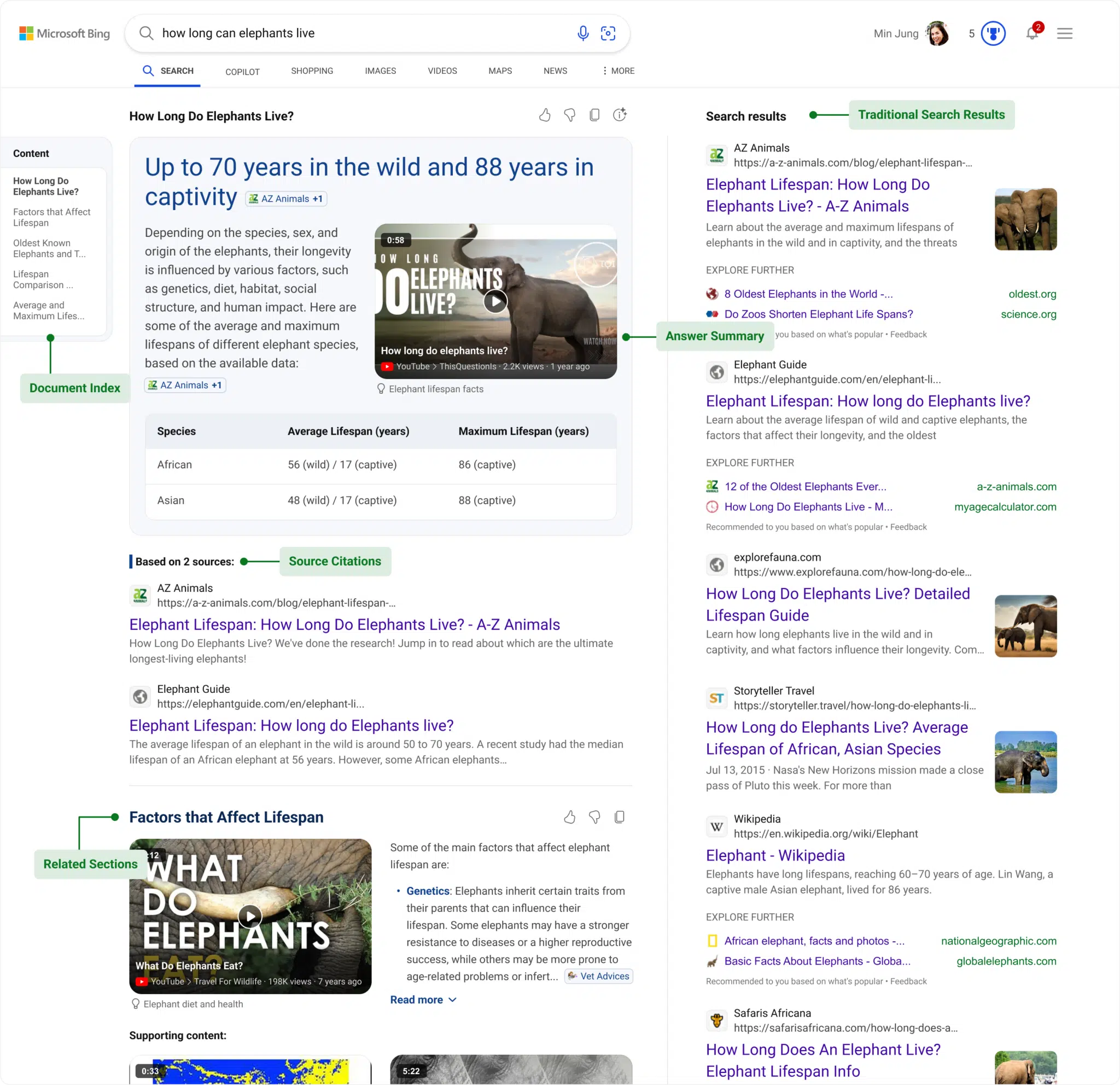Microsoft said this “combines the power of LLMs and SLMs with Bing’s search results to generate a more delightful and efficient UX layout.”
Bing is now testing its new generative search experience that combines the Bing search results and its language models to use AI to generate a different breed of search results, including an AI-generated search results pages.
“I’m excited to share an early look at Bing’s new generative search experience. It combines the power of LLMs and SLMs with Bing’s search results to generate a more delightful and efficient UX layout. This is another meaningful step forward in our evolution of AI-powered search,” Jordi Ribas, CVP, Head of Engineering and Product for Copilot and Bing, wrote.
What is Bing generative search. Microsoft explained that this search “experience combines the foundation of Bing’s search results with the power of large and small language models (LLMs and SLMs).” “It understands the search query, reviews millions of sources of information, dynamically matches content, and generates search results in a new AI-generated layout to fulfill the intent of the user’s query more effectively,” Microsoft added.
What it looks like. Here is a screenshot showing the various elements Bing generates in its search results page using AI and Bing Search. It includes the document index, an answer summary, traditional search results on the right, source citations for AI answers, related sections and more.
Here is a screenshot:

Here is another example Microsoft provided for a search on “What is a spaghetti western?” Bing shows an AI-generated experience that dives into the film subgenre, including its history and origins, top examples and more. The information is easy to read and understand, with links and sources that show where it came from or let the user dive deeper. The regular search results continue to be prominently displayed on the page like always.

Testing now. Microsoft said Bing is testing this now, with a small set of users. “We are slowly rolling this out and will take our time, garner feedback, test and learn, and work to create a great experience before making this more broadly available,” Microsoft wrote.
Why we care. As more search engines deploy AI in search, these ranking and user interface changes, also may impact your traffic to your site from Bing Search. While Microsoft said they hope this leads to “increasing the number of clickable links, like the references in the results,” it may not – and may not for all types of queries.
So keep an eye on your Bing Webmaster Tools over time to see how your click-through rate is impacted, if at all.
Again, this is being tested now and is not fully live for all searchers.


